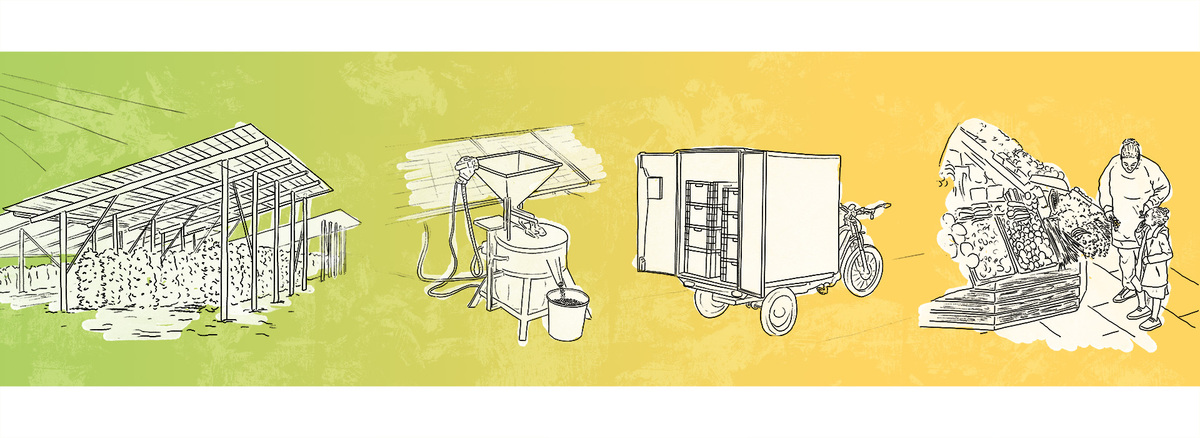Project on the future of sustainable food supply
Climate change, the COVID-19 pandemic, and the war in Ukraine have shown it: Conventional, global food supply chains are vulnerable. In addition, they come with negative side effects such as high greenhouse gas emissions, food insecurity, high food prices, or unfair working conditions and violations of human rights.
Can cooperative models provide a more sustainable supply?
Different cooperative business models all over the world promise a remedy. However, there is hardly any empirical or comparative research on their implementation and impact on the sustainability of food supply chains.
This is where the CO-SFSC project on “Co-creation of sustainable food supply chains through cooperative business models and governance” ties in. The framework is provided by the Belmont Forum's program on sustainable consumption and production systems.
Five hubs on three continents
CO-SFSC coordinates transdisciplinary and transformative research on local and regional food supply chains in five hubs and with six teams in Turkey, Thailand, Taiwan, Sweden, Germany, and the US. The researchers’ initial aim is to assess the status quo of current food supply structures.
Each hub creates knowledge to transform non-sustainable supply chains or to strengthen existing cooperative models. The researchers choose their respective focus together with their local practice partners.
The hub in Germany, which was set up by researchers from ITAS and the University of Freiburg, focuses on cooperative models and supply chains for sunflower oil, pulses, and processed fruit and vegetable products.
Further links or documents:
- Project page on the ITAS website
- CO-SFSC project page



